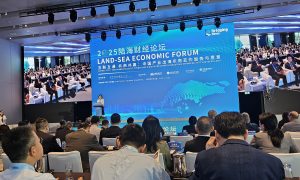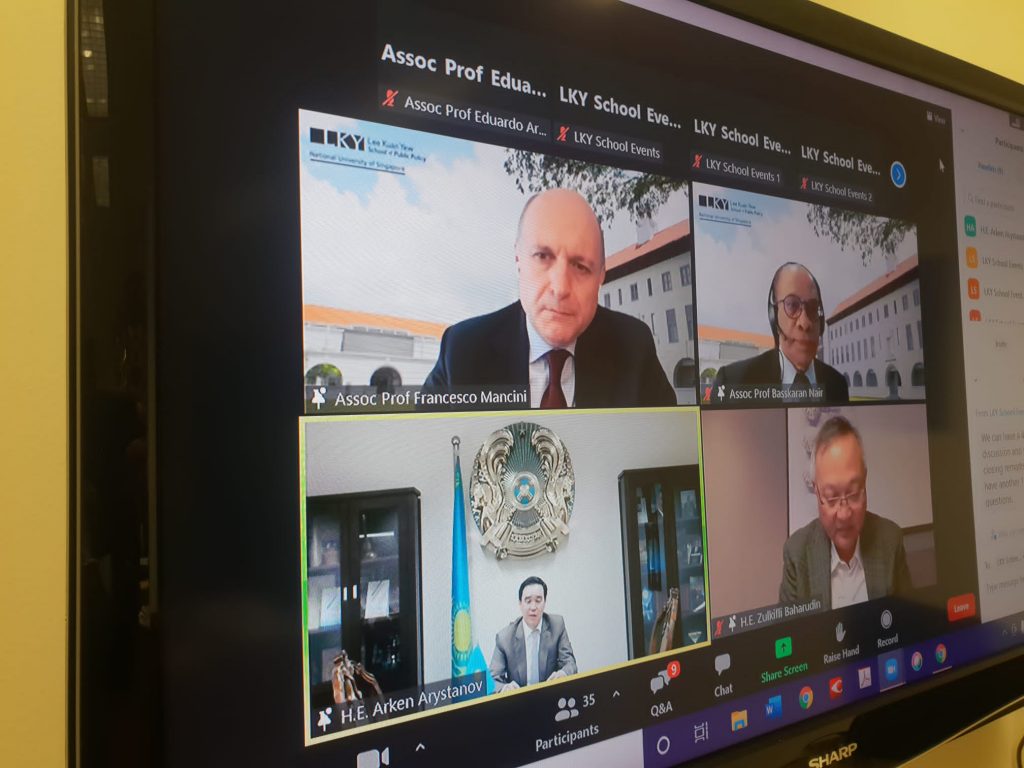
“The last 30 years have been an extraordinary journey for Kazakhstan, which has developed to become the most industrialised economy of Central Asia and also a diplomatic leader, not only in the region, but also globally, keeping very productive relationships with the West, the east and the rest of the world.
“I’ve been to the country many times and every time I go there I’ve seen new developments and new initiatives.
“Education is something that both Singapore and Kazakhstan consider important as an element of growth and we are honoured that the Lee Kuan Yew School has been working with the Graduate School of Public Policy at the Nazarbayev University since its inception 10 years ago.
“I am very impressed by the success of the school in such a short time, in many ways mirroring the story of the Lee Kuan Yew School in Singapore.
“On October 15 and 16 our school is partnering with the Nazarbayev University Graduate School of Public Policy in hosting a conference with a series of panel sessions and roundtable discussions on policy changes and structural reforms in Eurasia. It will be another occasion to continue the conversation that we’re having today.”
Economic and geopolitical success story
“Historically, Kazakhstan has acted as a bridge between Europe and Asia, playing an important and influential role in the political and economic developments of the region,” he said. “As progress is being made on reviving the ancient Silk Route, our country is well placed to become a vital trading link between China and Europe.
“Agriculturally, Kazakhstan is also known as the place where apples and tulips originated. In Singapore, from October 8 to November 14, we have organised an exhibition at Gardens by the Bay where you will see flowers from Kazakhstan, especially tulips. From the foothills of the Tian Shan mountains, the tulips were transferred to the Ottoman Empire, then to Austria and from there to the Netherlands. This is the long history. You will learn everything about the tulips when you visit the exhibition.”
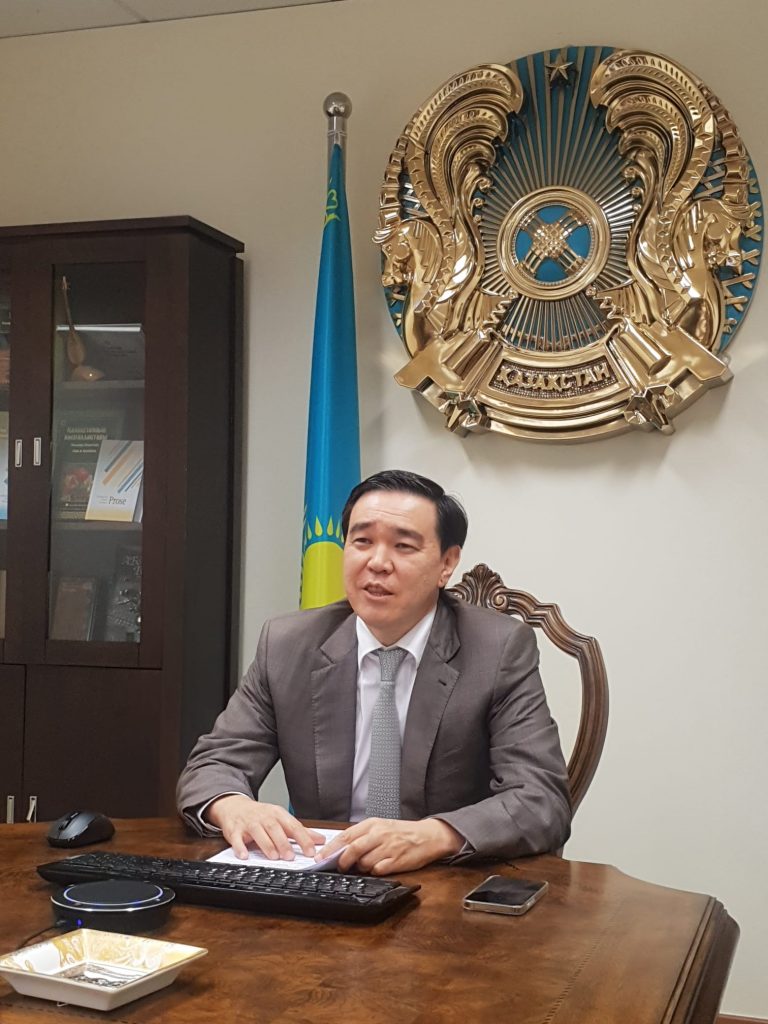
While inviting all in Singapore to visit the exhibition, Mr Arystanov (above) also pointed out that Kazakhstan is also rich in mineral resources.
“We have a vast wealth of oil, with reserves estimated at 30 billion barrels,” he said. “We are among the top 10 producers of oil and gas and the biggest exporter of uranium. Kazakhstan has huge reserves of zinc, silver, copper and gold.
“But this does not mean that we are limiting ourselves to extracting natural resources. We have a long-term programme of industrial and innovative developments designed to modernise and diversify the economy.”
Mr Arystanov listed how Kazakhstan has grown since 1991, pointing, for example, to the GDP per capita increasing by more than 1,500% – from US$700 to US$11,000. “The country has attracted more than US$350 billion in foreign investments, which is around 70% of the total volume of investment that has flowed to Central Asia,” he said. “And we have built a new capital Nur-Sultan, which has reinvented itself as one of the most innovative cities in the world.”
Commitment to multilateralism and global peace
“The country has hosted important international conferences and chaired key institutions, such as the Organisation for Security and Cooperation in Europe and the Organisation of Islamic Cooperation,” he said. “Kazakhstan is the founding member of the Eurasian Economic Union, with which Singapore signed a free trade agreement in 2019.”
As Kazakhstan celebrates the 30th anniversary of its independence this year, Mr Arystanov recounted the words of President Kassym-Jomart Tokayev, who said recently that independence serves as a strong pillar of Kazakhstan’s statehood. “There is no greater value, it is the most precious treasure for our nation,” Mr Tokayev said.
The President, while addressing a joint session of the chambers of the Parliament in September, also announced a slew of new political, economic and social development initiatives. In particular, he emphasised the need to build a truly diversified technological economy and work diligently to improve the welfare of the people.
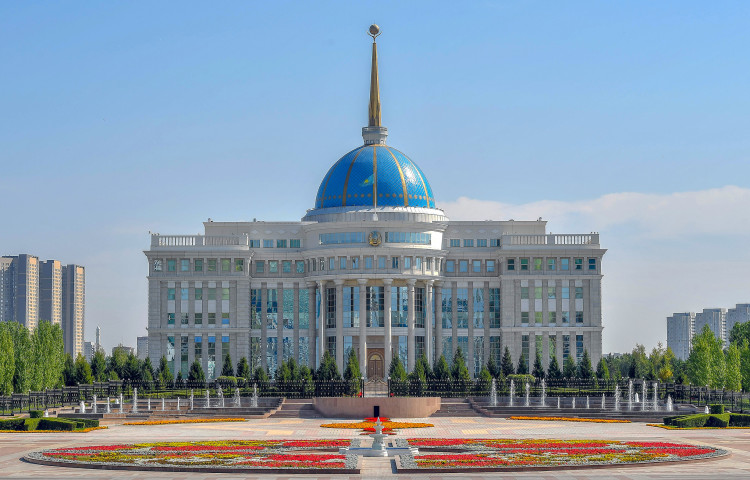
“The global Covid crisis has put further pressure on people’s incomes,” said Mr Arystanov. “So, since 2020, the salaries of teachers, doctors and social workers have been increased in Kazakhstan. The minimum wage has also been increased from 42,000 tenge to 60,000 tenge. The wages of public sector employees will increase by 20% annually from 2022 to 2025.
“In the new digital era, digitalisation will have a geopolitical significance. Kazakhstan’s aim is to become a central digital hub in a significant part of the Eurasian region.”
The Ambassador added that, despite the ferocity of the pandemic, Kazakhstan is relatively safe and will overcome the economic impact as it has low public debt and significant reserves.
“Our President is continuing the country’s push for economic, social and political modernisation and development,” he said. “The aim to become one of the world’s top 30 most developed states by 2050, an inititiative championed by First President Nursultan Nazarbayev, which is truly on course to becoming reality.”
A very blessed country
“In 30 years, Kazakhstan has experienced stability, peace, economic and social progress and prosperity,” said Mr Baharudin. “If you compare that with many countries around the region and the last 30 years even of Singapore, I think Kazakhstan is blessed with the kind of progress they have made. It has very much escaped many of the problems that many emerging countries face in their initial years of their lives.”
Mr Baharudin felt that this progress did not happen by chance. “They were very important choices that were made by the elders, who decided that it was very important to make the country relevant, not only regionally but also globally,” he said.
“They have made very important contributions and sacrifices. For example, on the founding of Kazakhstan, the First President (Mr Nazarbayev) decided that, despite the fact that he inherited a huge amount of the largest nuclear arsenal on earth, that Kazakhstan must not be a nuclear power. I think that’s a very, very important decision and one of the key moments in history that all of us should be thankful for.”
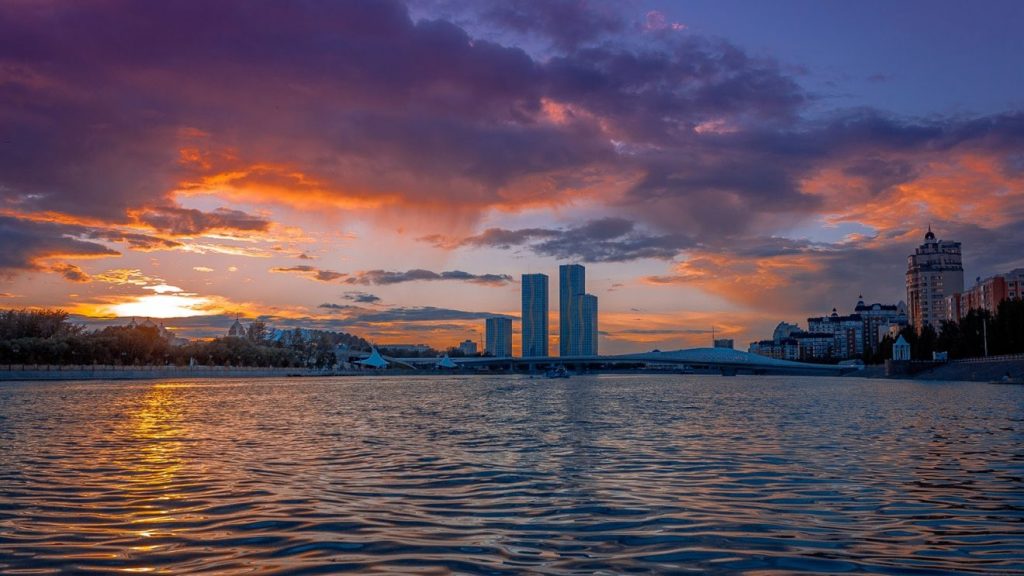
Mr Baharudin added that Singapore can learn many lessons from Kazakhstan, especially its pioneering and adventurous outlook.
“The foundation for the Singapore-Kazakhstan bilateral relations was placed by both our leaders,” he said. “Mr Lee Kuan Yew (Singapore’s first prime minister) and the First President had a strong personal relationship. But it went beyond personalities. They could take advantage of their personal ties and build it into economic goodwill.
“The two leaders did a lot of things that we are now inheriting. We are miles apart, there’s very little contact and familiarity, but they could do a lot of things to bring the two countries together from two vastly different regions.”
Mr Baharudin also said that both countries should take advantage of Mr Tokayev’s familiarity with Singapore and its leaders.
“Many people may not know that President Tokayev spent many years in Singapore as a diplomat,” said Mr Baharudin. “He has met very senior personalities from Singapore and it’s quite clear that his time spent in Singapore is a great help to Singapore-Kazakhstan bilateral relations. We should take advantage of that, both economically and politically and to build people to people relationships.
“We have great political ties that we have developed and nurtured over the years and I hope that we will turn those into economic and commercial opportunities. The tie-up between Nazarbayev University and the Lee Kuan Yew School of Public Policy is just one example. There are many other examples we are working on in terms of anti-corruption and our mutual respect and support of protocols of United Nations resolutions and bilateral interests. These must continue.”
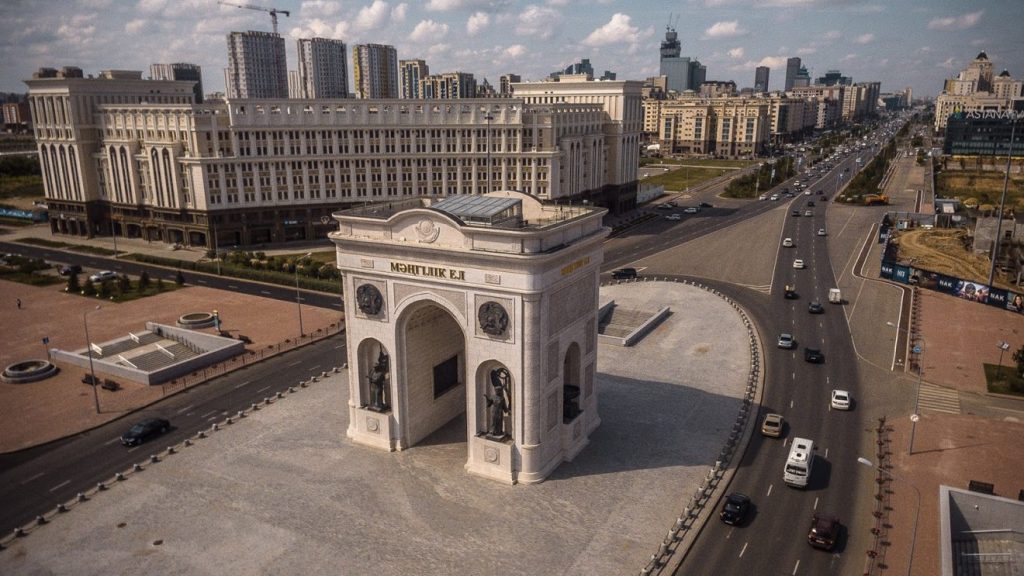
Mr Baharudin also encouraged younger Singaporeans to understand that it is extremely important for a small country to build a global, international network with good friends like Kazakhstan.
“Singapore needs friends around the region for it to make progress and become successful,” he said. “Singapore’s future must necessarily be global, and Central Asia, with Kazakhstan being a very important player, is important to the future of Singapore.”
A cohesive nation
“People don’t realise how multi-racial, multi-ethnic and multi-lingual Kazakhstan is,” he said. “Soon after independence, there was so little competence and the possibility of forming a successful nation appeared remote as there was a mass exodus of Germans, Greeks, Turks and Russians. But now we are looking at a country that’s extremely stable and the national identity is strong among the people.”
Mr Nair also said that he is impressed with the approach of Mr Tokayev, who is “always out there doing things”.
“He is guiding the nation and winning the hearts and minds of the people by his hands-on approach, which is a very good sign”, said the Visiting Professor.
Mr Nair also commended Mr Tokayev’s foresight.

“Under his leadership, recently a plan was approved to build another city, which is about 50 kilometres long in the north-south corridor of the country,” revealed Mr Nair. “The length will be roughly the length of Singapore from east to west and they are building a city like Singapore.
“The city was first conceived by President Nazarbayev, although it was a private sector initiative. The master plan, which covers an area of 1,118 square kilometres, was prepared by Singapore company Surbana Jurong. It is a 30-year project.
“It is a built environment of the future and coming up close to the already vibrant commercial city of Almaty, which has a population of 2 million. The projected growth of the new city is 2.4 million residents, with over 7,000 residential units, of which 67% will be condominiums. It is expected to create a footfall of 4.3 million tourists of whom 60% will be international.”
According to Mr Nair, the World Bank is funding many projects in South Kazakhstan which are being executed by Surbana Jurong. “These projects are actually bringing Singapore and Kazakhstan closer,” he said.
Special relationship between Kazakhstan and Singapore
“I have been in Kazakhstan for 12 out of its 30 years of independence,” he said. “I was privileged to travel to Kazakhstan 17 times, starting by working with the academy of public administration, helping build the Graduate School of Public Policy from scratch, training more than 700 Kazakh officials and students and contributing to the development of many other government agencies.
“Looking back, I must say that very few newly-independent countries can match what Kazakhstan has done in a very short period,” he said.
Assoc Prof Araral then spoke about the special relationship between Kazakhstan and Singapore.
“In 1993 President Nazarbayev first met Mr Lee Kuan Yew to seek his advice on the newly independent republic,” he said. “We all know Mr Nazarbayev admired Mr Lee for his strong leadership in building Singapore into a prosperous and internationally respected country. Like Singapore, the new Republic of Kazakhstan was faced with ethnic tensions, geopolitical risks, the problem of attracting investors, creating jobs and securing international recognition, among many other issues. These are the same problems that Singapore faced when it was a newly independent republic in 1965.
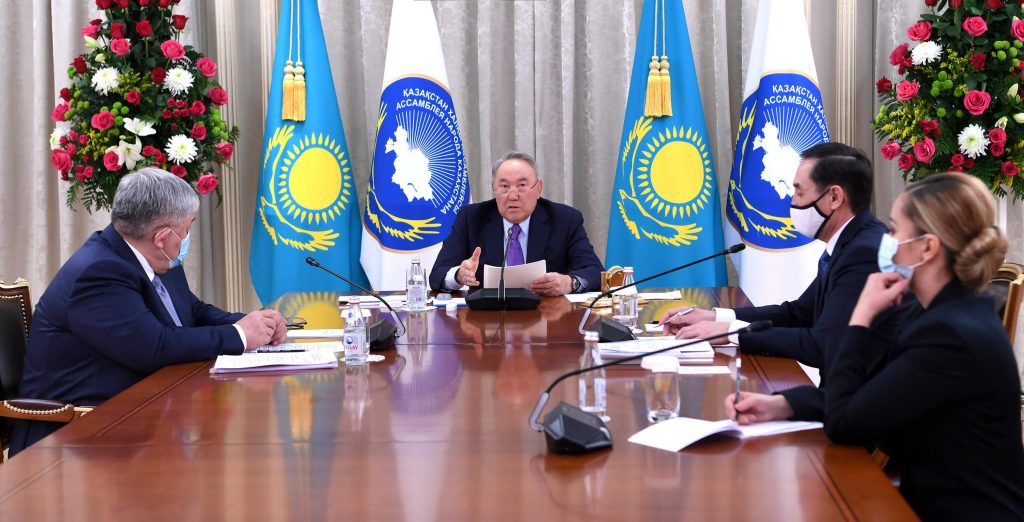
“So, 23 years since they first met, one is tempted to ask how does Mr Nazarbayev (above) compare with Mr Lee in terms of building a modern state. Having followed and observed both leaders over so many years, I think it is fair to conclude that history will judge Mr Nazarbayev generally in the same favourable light as Mr Lee.
“As far as state building is concerned, more generally, I would say it is fair to say that Mr Nazarbayev belongs to the same board of strong developmental leaders from East Asia, China, South Korea, Taiwan, Indonesia and Malaysia who use state authority to build their economies into one of the most dynamic in the world.”
Assoc Prof Araral then suggested three illustrative examples from the academic perspective.
“First, like the leaders of East Asian economies, Mr Nazarbayev invested heavily in education,” he said. “The Bolashak programme allowed the best students in Kazakhstan to study abroad under state scholarships. Kazakhstan is one of the few resource-rich countries in the world that has invested heavily in foreign scholarships. This is perhaps what sets Kazakhstan apart from other post-Soviet and post-colonial countries.
“Second, like Mr Lee, Mr Nazarbayev sought to unite the ethnically and religiously-diverse country. He has succeeded in holding together the large country.
“Finally, like Mr Lee, Mr Nazarbayev was open minded and a visionary. He was ambitious and pragmatic. Mr Lee once said that 80% of what you see in Singapore were ideas that were borrowed and adopted from other countries. The substance in Kazakhstan is no different. Mr Nazarbayev sought and welcomed advice from around the world. He embraced ambitious reforms, market liberalisation and trade, financial and monetary reforms.
“He also pushed for civil service reforms, anti-corruption reforms, digital transformation and most recently constitutional reforms. Very few leaders can match this kind of record of reforms in a very short period of time.
“Perhaps, most importantly, like many newly-independent countries, Kazakhstan has managed a peaceful transformation of power. And the new government of Mr Tokayev is vigorous and committed in pursuing the reforms.
“This shows that Mr Nazarbayev justifiably belongs to the same group of old developmental leaders from East Asia. Of course, the final judgement has to be delivered on this.”
Kazakhstan’s aim to become a central digital hub
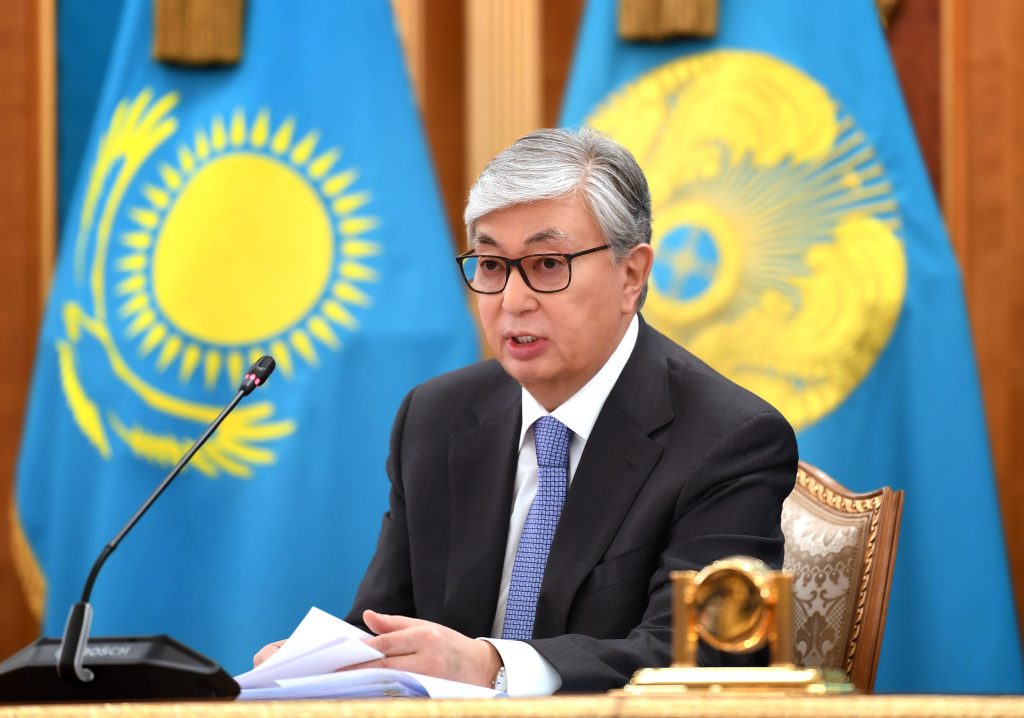
Ambassador Arystanov explained that, in his address to the nation, President Tokayev (above) mentioned that becoming a central digital hub is imperative for Kazakhstan.
“In the next few years, we will need more than 100,000 IT specialists, and we don’t have this number,” said Mr Arystanov. “So, the government decided to provide 20,000 vouchers from the budget in order to train new IT specialists. Everybody understands that, without digitalisation, the economy cannot develop. So, it’s very important to create the database, the processing centres and so on.”
“The government has decided to increase the export of IT services, and touch US$500 million in 2025. We have in the ministries and government agencies more than 300 separate programmes and sometimes they are not integrated. So, first of all, we want to integrate them to have a processing data centre in Kazakhstan and we want to provide the world’s leading companies the opportunity to create business in Kazakhstan. We have announced that the Astana International Financial Centre will use English law to allow foreign investors to do business in Kazakhstan. All these efforts will create a real digital hub in this area.”
Future of education in Kazakhstan
“Five year ago, a business economy was the bright line,” he said. “But now we understand that this is not enough. And that is why it’s very important, especially for the young generation, to be more culturally and digitally educated.
“I think the government has realised the importance of training, the importance of lifelong training.”
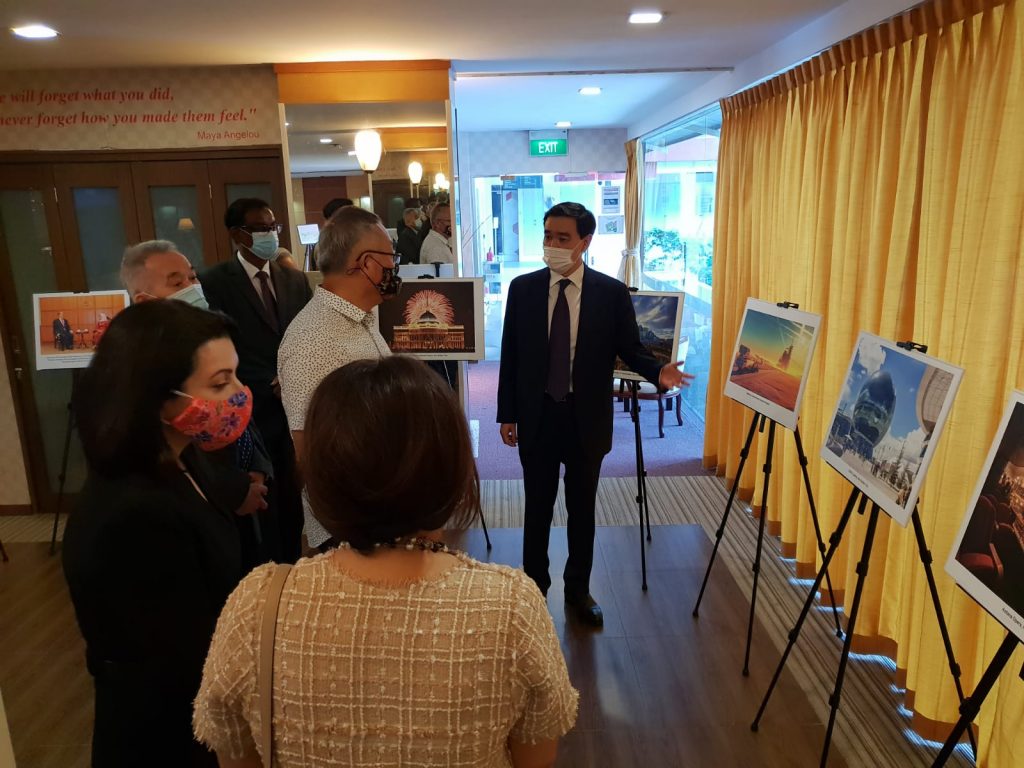 Mr Nair added that the Governor of the AIFC has mentioned that Kazakhstan is looking to Singapore on all issues related to digitisation and integration.
Mr Nair added that the Governor of the AIFC has mentioned that Kazakhstan is looking to Singapore on all issues related to digitisation and integration.
Ambassador Baharudin was then asked to outline some of the potential joint ventures between Kazakhstan and Singapore.
He pointed to technology.
“Digitalisation allows both Singapore and Kazakhstan to overcome many of the physical constraints that we may otherwise have to do trade and business,” he said. “Technology allows us to overcome many of the impediments of being small.
“It is important for Kazakhstan also to be relevant to the rest of the world. This also applies to Singapore. We cannot just be defined by our neighbours, we have to necessarily be global. And therefore, I think Kazakhstan has taken the right approach of trying to seek out relationship lessons from all over the world.
“I think that’s the kind of spirit that we must continue as the older generation to tell the younger people how important it is to be part of a global community.”
Ambassador Arystanov brought the roundtable discussion to a close by agreeing with the panellists that Kazakhstan has done well since independence and it has a bright future for the next 30 years. “I believe, importantly, the young generation have freedom which they should enjoy,” he said.



